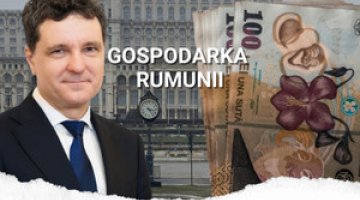Romania: a new centre-left government
On 21 June, Romania’s parliament passed a no confidence vote on the centre-left cabinet led by Sorin Grindeanu; it had been formed less than six months before. The vote was initiated by the government coalition consisting of the Social Democratic Party (PSD) and the Alliance of Liberals and Democrats (ALDE) which accused the prime minister of implementing the election agenda too slowly and withdrew support for their own cabinet. On 26 June, President Klaus Iohannis nominated Mihai Tudose from PSD, who had been serving as the minister for the economy, as a candidate for prime minister, thus granting his consent to the coalition’s request. On 29 June, the government led by Mihai Tudose won a vote of confidence in parliament. More than half of the ministers from the Grindeanu cabinet have kept their positions. However, the ministries of finance, economy and defence are among those that have new heads. The minister of European affairs was also replaced (the minister of foreign affairs maintained his post).
Commentary
- The cabinet reshuffle is an effect of the increasing tension between Prime Minister Grindeanu and the members of the government coalition; it was provoked by both ambition and political differences. When Sorin Grindeanu became the head of the government, he declared full loyalty to the leader of PSD, Liviu Dragnea, who could not take the post himself because he had been sentenced for electoral fraud (Romanian law does not allow anyone with a criminal record to assume government functions). Towards the end of January, the Grindeanu cabinet passed an urgent decree amending the criminal code which partly decriminalised crimes linked to holding public functions. This move was interpreted as a gesture of loyalty towards Dragnea – the PSD leader is facing charges of abusing power when he was a local government member. However, the legislative amendments adopted without the participation of parliament provoked massive public protests (around 300,000 people took to the streets), strong resistance from the president and anti-corruption bodies, as well as criticism from the USA and the EU. In effect, Grindeanu cancelled the legislative amendments and promised that the government would further proceed with the controversial regulations in a more transparent manner. This was in contrast to the reaction of Dragnea and the other coalition leader, Călin Popescu-Tăriceanu (the head of ALDE), who branded the protests as an attempted coup and defended the amendments as constitutional. The prime minister, distancing himself from Dragnea, was gradually building up his popularity, becoming the politician with the second highest – after President Iohannis – approval ratings (34%, according to an IMES poll in May this year). The tension between the government and the coalition leaders additionally coincided with disputes over the speed of implementation of the election agenda.
- A decision passed in early June this year by the Constitutional Court may act as a catalyst of the political crisis. The court suggested introducing a threshold for the state’s financial losses below which abuse of power would be treated as a misdemeanour and not as a crime. Relevant amendments in the criminal code might allow Dragnea to avoid potential imprisonment. However, Prime Minister Grindeanu and the minister of justice suggested that they did not intend to be in a rush to amend the law in this area. This was most likely understood by Dragnea as another manifestation of disloyalty.
- The government crisis has proven that Liviu Dragnea is the leader of the government camp. By rapidly pushing through the dismissal of Grindeanu, he has demonstrated that his position in the party is safe. He has also made it clear that any possible disobedience from the prime minister will meet with a strict penalty. However, the Social Democrats will most likely have to pay the political price of decreasing popularity in connection with the government reshuffle. The most adverse effect on the political left’s image is above all emphasising the slow tempo of implementation of the election agenda by the leaders of PSD and ALDE, which was the official reason for the dismissal of the Grindeanu cabinet. Differences inside PSD, which had so far been presented to the electorate as a united and disciplined party, have also been manifested. Even though Prime Minister Grindeanu has been removed from the party, he has managed to form a small group of MPs around himself (including former prime minister, Victor Ponta) who are publicly questioning Liviu Dragnea’s style of governance. The Social Democrats’ negotiations with UDMR, a party representing the interests of the Hungarian minority, may also adversely affect PSD’s support levels. Hungarians, in exchange for backing the motion to dismiss the government, demanded a broader extent of cultural autonomy and the use of minority language in local government structures. The deal between PSD and UDMR has not been struck (Dragnea did not accept all the demands). However, the very fact that the two parties have been engaged in negotiations will most likely be viewed negatively by the left-wing electorate for whom granting more rights to the Hungarian minority is a sensitive issue.
- As had been the case of dismissed Prime Minister Grindeanu, the coalition expects Mihai Tudose to play the role of executor of its agenda. Tudose is a seasoned Social Democrat politician but has never been part of the inner-circles of the decision-makers in PSD and has not built a strong support base inside the party, so PSD views him as a convenient candidate for prime minister. The presented makeup of the cabinet indicates that the leaders of PSD and ALDE will maintain the key influence on the ministers.
- President Iohannis decided to back the candidate presented by the coalition without delay because it is impossible to build a majority in the present parliament without the participation of the political left. PSD had the highest support level in the election in December 2016 (46%), and the opposition parties are fragmented and in deep crisis. This means that if the president were to attempt to push through his candidate for prime minister, this would most likely lead to a snap election that in turn would most likely result in a re-creation of the present coalition. According to an IMAS poll in May this year, the support level for PSD was 40%, and ALDE’s was 8%. Furthermore, the centre-right opposition party PNL, from which the president originates, was backed by 25% of the voters, and the second opposition party, USR, was backed by 8%. The president, by avoiding a dispute over his candidate for prime minister, may present himself as a guarantor of stability and predictability and as a person who is above the political divides. This effect has been additionally strengthened by Iohannis’s diplomatic offensive; in recent weeks he has met the US president, the German chancellor and the president of France. On the other hand, the choice of Tudose, who has been accused of PhD plagiarism, is difficult to accept for Iohannis’s electorate, since the president is trying to present himself as a politician who defends ethical standards in politics.
- The way relations between President Iohannis and the future Tudose government will develop further will depend above all on the government’s possible moves in the area of anti-corruption legislation. The fact that the previous minister of justice has maintained his position may indicate that the anti-corruption law will not be liberalised soon. Nevertheless, it is also likely that the political dispute between the president and the centre-left coalition over corruption issues will continue. The president may thus present himself as a defender of the rule of law, while the political left will continue its attempts to exploit the narrative of being a ‘victim’ of politicised institutions in charge of combating corruption. Meanwhile, the Romanian media are suggesting that Mihai Tudose has close ties to the intelligence services. These rumours are problematic for the leaders of PSD and ALDE who often resort in public debate to rhetoric suggesting that the secret services have a strong influence on Romanian politics.





